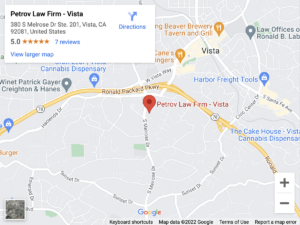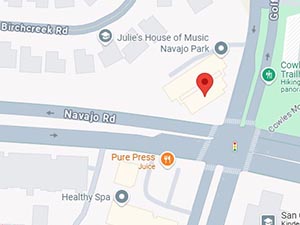
Just about everyone “knows” that attorneys are expensive. But are they right? Well, that depends on what type of attorney you need. Most attorneys charge hundreds of dollars an hour for their time.
Personal injury lawyers are different. Their services, if successful, generate income in the form of compensation paid by the defendant. Consequently, personal injury lawyers prefer to charge their clients a contingency fee.
The Initial Consultation

Almost all personal injury lawyers offer free initial consultations. The consultation serves two purposes. On your side, you will want to know whether you should hire this particular lawyer. After all, San Diego is home to many personal injury lawyers.
The lawyer will also want to know whether your claim is legitimate. How likely are they to win compensation? If they win, how much are they likely to win? The lawyer might ask you many questions, and they might even ask you to bring documents (an accident report, for example) with you to the consultation.
How Does a Contingency Fee Work?
In a contingency fee arrangement, you and your lawyer agree that if your lawyer wins your case, they take a certain percentage of whatever amount the defendant pays in compensation. The fee ranges from 33 to 40 percent in most cases.
Note the importance of a contingency fee arrangement. Suppose your lawyer agrees to take 33 percent of your compensation. If they don’t win any compensation from the defendant, they don’t recover any fees. Thirty-three percent of zero is zero. This is why a lawyer won’t take your case unless they believe they can win it.
It’s Not Just Whether You Win or Lose…
Winning isn’t enough by itself. To take your case, a lawyer must believe that they can win enough money to make their efforts worthwhile. You can be sure that if an experienced personal injury lawyer takes your case, they believe in your claim.
Case Expenses
Lawyers investigate claims to gather information and evidence that will strengthen their clients’ claims. Although most claims end in settlement, the best way to win at negotiation is to prepare to win in court. Seeing that you have a strong case, the defendant is likely to make a generous settlement offer rather than risk losing in court.
Investigation takes money. How much money varies from case to case. Typical expenses include:
- Court fees. These can get expensive, but if you win, the court might order the defendant to pay these fees.
- Requests to your healthcare provider for copies of your medical records;
- Costs for expert witnesses. Expert witnesses do not appear in every case, but they charge significant fees when they do. Expert witnesses are routine in medical malpractice and product liability cases.
- Costs for depositions, interrogatories, and other pretrial discovery procedures.
- General investigation expenses (travel expenses, for example).
Most lawyers will pay these fees for you and deduct them from your compensation only if you win. If the defendant pays no compensation, the lawyer will probably take a loss on these expenses rather than charge you for them.
Factors That Determine the Amount of the Contingency Fee
The following factors determine how much your lawyer is likely to charge you for a contingency fee:
- Case expenses. If you need expert witnesses, for example, your lawyer might demand a higher fee. This would be to offset their risk of taking a loss by paying case expenses for a losing claim.
- The size of your claim. The larger your claim, the lower percentage your lawyer will accept.
- The complexity of your case. The more complex your case is, the more work there is for your lawyer to do.
- The strength of your claim. Your lawyer won’t want to risk losing your claim and working for free.
- Whether your case goes to trial. Trials take a lot of time and many hours of work.
If your case is too challenging to win, too complex, or too risky, the lawyer might refuse to represent you.
Deductions From Your Compensation
There are two ways to win compensation from a personal injury claim—settlement and litigation. The vast majority of claims settle out of court. Nevertheless, in many cases, the claimant will file a lawsuit but settle the case before trial. The money will go from the defendant to your lawyer’s escrow account. Your lawyer will deduct expenses and transfer the rest of the money to you.
Typical deductions consist of:
- Your lawyer’s contingency fee;
- Case expenses;
- Enough money to satisfy any medical lien that your healthcare provider may have taken on your medical bills; and
- Any other applicable deductions.
Your lawyer should provide you with a detailed accounting of every deducted expense.
Contact a Personal Injury Lawyer If You Believe You Have a Claim
If you suffer an injury you believe someone else might be liable for, you might not know whether you have a valid personal injury claim. You have little to lose by scheduling a free consultation with a competent personal injury lawyer. Who knows? Your claim might be worth more than you think it is.
Call (619) 344-0360 to contact a Vista personal injury lawyer at Petrov Personal Injury Lawyers to schedule a free consultation to discuss your case.


